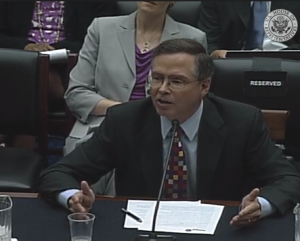Congressional Testimony Statement before the House Committee on the Judiciary Subcommittee on Courts, Intellectual Property, and the Internet

On August 1, 2013, I testified before the House Judiciary Committee’s Subcommittee on Courts, Intellectual Property, and the Internet on the subject “ Innovation in America: The Role of Technology .” In my prepared statement, I explained why well-balanced intellectual property laws inspire technology innovation and social good, and described how our Bookshare initiative models the good that copyright exceptions can create. Here is an excerpt from my written testimony, as originally featured on Benetech's Blog : Delivering my statement before the House Committee on the Judiciary, August 1, 2013 We build our work on strong foundations laid down by other people and companies, whether it’s the open source ecosystem of the Internet, or proprietary software or content. We don’t create solutions from scratch: our innovation is adapting existing raw technology to meet the needs of the users in the social sector. We call this building the last “social mile.” We depend on an intelle
